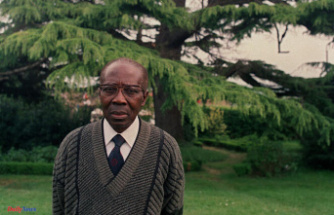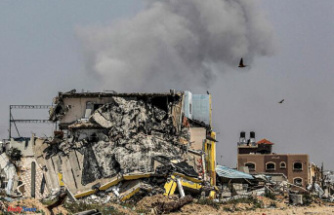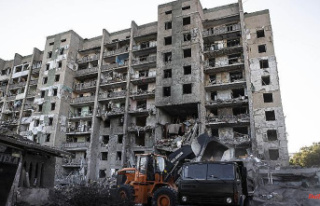Aliyah appears like any other 24-year old - she is a fashion-loving, happy-go-lucky, and posts photos on Instagram. Experts warn that Aliyah's smile hides a history of abuse and exploitation, which is a common pattern among teenage girls.
Aliyah's earliest memories do not include family trips or teddy bears.
Instead, she recalled coming home from school feeling relieved when she saw that the front window was opened. This meant that her dad was letting in fresh air.
Aliyah didn’t know much about drugs at the time. She had learned that if the window was open, he would be happy. "Whereas if it is closed there is no smoke, so Daddy does not have what he requires," she said.
No one outside of the family knew what was happening behind closed doors at their south London home. She claims that there was violence in her household, and Aliyah would sometimes be the victim. She would snuggle up to her sister on her bunk bed, crying herself to sleep.
Sometimes, money was hard to come by and food was often scarce. Aliyah remembers the days when she was hungry and there was no food in her home.
Aliyah and her siblings would not be picked up by social service until many years later. Aliyah believes that there were opportunities to safeguard her and her siblings. She remembers her parents "best" faces when authorities arrived.
Kendra Houseman is a consultant on child criminal activity and says stories like hers follow a familiar pattern: "If their home isn't safe, they are more vulnerable to being exploited." She warns that there are many other hidden girls like Aliyah.
Aliyah managed to overcome all odds and turn her life around.
Aliyah was eight years old when her dad invited friends to celebrate his eighth birthday. Someone gave Aliyah champagne. She consumed so much alcohol that she was hospitalized with alcohol poisoning.
This was Aliyah's first step towards alcohol abuse. She says, "After that I'd just start to drink - I would always like to drink." Aliyah was 13 years old when she became dependent on alcohol. "It became a problem when I started drinking because of depression."
After her parents divorced, her father left the home. Over time, it became known as a traphouse in drug circles. This was a place where drugs and weapons were kept and dealers would congregate.
Aliyah distinctly remembers being left there alone once.
She says, "I was 10 years old and left my home with all these drug dealers." She was still a child and assumed that it was her fault.
One man, a frequent visitor to the trap house, noticed that something was wrong. She says, "He showed more genuine concern." He was a friend to Aliyah and would take care of her. He saw a little girl who didn't have her parents the way she needed them and he wanted to help her out whenever he could.
Aliyah was not on the child protection registry, but she was allowed to continue living in such circumstances. Aliyah also finds the behavior of the authorities confusing. She says, "I believe they missed many things." "If there was any abuse in the home, the child would be taken away immediately," she said.
Aliyah, then 12, was eventually placed in foster care. She was already an extremely troubled child at that point.
Aliyah claims that she was placed in around 20 foster homes during a three-year span. She would often run away and live in squalor. She would drink till she was completely drunk. Her behavior at school was worse. She would bully and break other children's things.
She recalls feeling trapped in survival mode, as though there was no escape. She attempted to end her own life many times.
She began to hang out with older teens and was soon drawn into a world full of violence, crime, and drugs. Aliyah started stealing, robbing, and beating up people - her trauma from her childhood had led her to a destructive path.
Aliyah quickly gained a reputation and was given the task of punishing any member of the gang who strayed from the line.
She says that it was years of hurting others and myself. It was due to what I had experienced - the things I didn't deserve, it was affecting my life.
It did take my childhood away. It was taken from me too young. It was too late. Things just got worse."
This made Aliyah a target for grooming. Aliyah eventually met a man in her 20s who convinced Aliyah that they were in a serious relationship. She says, "I thought that I was in love" with him.
The reality was quite different. She says, "He wanted me to sell his drugs for him." "I could not tell that I was being exploited." They split up soon enough.
Rita Jacobs, a London social worker, said that this "boyfriend model of exploitation" is something she has seen with increasing frequency.
Jacobs says that some girls are unaware they are being exploited. They believe they are in a romantic relationship, but what they don't realize is that their partner is actually a perpetrator.
Aliyah was groomed offline. Hannah Ruschen, NSPCC's child safety officer online, said that technology has made it easier to exploit and target vulnerable girls in the ten years since Aliyah was groomed.
According to the charity, 5441 Sexual Communication with a Child offenses were reported in England and Wales between 2020/21 and 2017/18. This is an increase of 9% over the previous year, and 69% more than the 2017/18 first introduction of the offence.
NSPCC claims that over 80% of online groomed children are girls, and that the majority of these children are between 12-15 years old.
Ruschen says, "Because there's constant access the child via internet, it can happen very fast." It can start as a simple friend request, and quickly escalate into the sharing of images online.
Aliyah fled her foster parents at the age of 14 She lived at several friends' homes. She was aware that she had been reported missing and couldn't leave.
She was eventually unable to bear the isolation and surrendered herself at a station. She was issued a youth referral order, and she was placed in a home for the first-time.
Although she didn't realize it, this was the beginning of her journey to turning her life around.
Aliyah was 15 when she arrived at Bridges Lane in Croydon. It is a large building in Croydon. She put on a brave face when she arrived at Bridges Lane, a sprawling building in Croydon, south London. But deep down, she was afraid. This was a new experience.
An adult staff member set the rules for her on her first day. She had to return home by a certain time and there was a curfew. Each night, all residents would sit down to eat dinner together with the care workers.
Aliyah recalls, "She just handed the law to me and that's all I needed." She had never been subject to discipline before. It was something I loved. It was just that I didn't want to show it because I didn’t trust anyone."
Bridges Lane was not an easy place for Aliyah to start. She misbehaved and tried to push the boundaries. She says, "I believe I was testing them but I was also crying for help." I needed a family. I wanted to cry and hug someone, and that's what I found here. And I met Rowena."
Rowena Miller was Rowena's assigned key worker. This was Rowena’s first job. Aliyah knew Rowena would always have her back. This was the first time she felt someone believed in and supported her.
She says, "I was certainly traumatised from all aspects of my life." "And a little of that still lives inside me now.
"I now know how to manage it better than I did before, because I didn’t know that I was traumatised." "I didn't know what was happening before."
Many girls, like Aliyah, are unable to escape the effects of exploitation. But Aliyah did.
She says, "That home helped me to relax." "I wasn’t lost any more."
With a new outlook, she left Bridges Lane. At 16 she found out she was pregnant. It was a wake up call. She says, "I was not going to let my son experience even a quarter" of what she went through.
She was aware that she was still under the radar of social workers and that her baby would not be allowed to leave her house if she did anything wrong. She attended all of the meetings she was summoned to and followed the instructions to stop smoking and drinking.
Her daughter was born seven years ago. Although it was a difficult pregnancy, Aliyah believes that the experience has changed her life. Aliyah states, "If it weren't for her, I wouldn't have been here - she saved my life." "She is seven years old, and she has seen everything I haven't experienced since I was seven. That is why I praise the Lord every single day.
Aliyah now lives with her daughter in a place she calls a "home" and not just a house.
They lead a normal lifestyle - Aliyah is a worker, enjoys poetry writing, and she is now studying to be a social worker to help children the same way Rowena helped Rowena.
"I'm still on the journey. My daughter is my responsibility. Because I am a mother, I have a home. I work. It smiles at me every single day. It was possible. I am in a better place.
Many people believe that a sentence in jail is the most horrible thing that could happen to them. However, if you have been subject to domestic abuse (which most female prisoners have), you might see the situation slightly differently.
"The day I went into prison, I got my whole life back"












